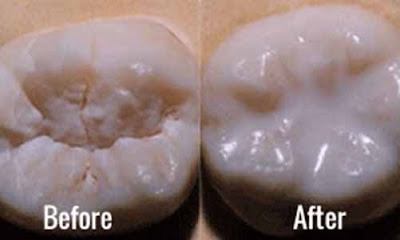Why are dental sealants so important?
Sealants have been proven to help prevent cavities in children by 70% and is typically a covered benefit with most dental insurance companies up to a certain age.
- Your molars naturally have deep groves in them, some children’s molars may have even deeper groves than others. Since they are deep food and bacteria are prone to getting caught in the grooves and are very hard to remove, even with a twice daily brushing routine. When dental sealants are placed, they fill in these grooves, making it easier to keep the molars clean and therefore prevent cavities.
- The most recent research proves that dental sealants not only protect healthy teeth, but can also stop decay from forming in the beginning stages, which in turn prevents future cavities.
What Are Dental Sealants?
Dental sealants are a thin, plastic coating this is applied by your dentist or hygienist that fill in the deep groves of the chewing surface on your molars. There is no pain associated with this procedure, no drilling or shots are used. Placing a dental sealant only takes about 5 minutes per tooth. The teeth are simply cleaned, dried, and cotton is placed around it to keep it dry. A gel is put on the tooth to make the surface rough so it will help the sealant stick to the tooth. The tooth is then rinsed and dried again. The sealant is applied through a liquid form and will harden in a few seconds. A special light is applied to help dry the sealant to a hardened form. Eating and drinking is fine after the teeth are dry!
Dental sealants can last up to five years or more, however it is very important to maintain regular dental checkups to monitor them and make sure they are not worn away or chipped. Keeping your teeth clean, brushing for two minutes, twice a day using a fluoride toothpaste and flossing is recommended even with dental sealants. Sealants are only an additional preventive measure used to help protect your kid’s teeth.



Comments
Post a Comment